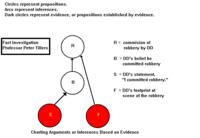 Larry O'Hanson, The furious storm: one wild hurricane could drown a major American City. Can scientist prevent the disaster in time, Scholastic, Inc., Science World (October 18, 2002):
Larry O'Hanson, The furious storm: one wild hurricane could drown a major American City. Can scientist prevent the disaster in time, Scholastic, Inc., Science World (October 18, 2002):Here's a tip from the experts: If you're in New Orleans when the "Big One" hits, have a lifeboat handy. Some scientist[s] warn that the right hurricane--a tropical cyclone with at least 74-mile-per-hour winds--could strike the Gulf Coast in a way that would hurl millions of gallons of water to turn the city known as the Big Easy into the Big Soup Bowl....A major flood could submerge much of central New Orleans beneath 20 feet of water, leaving many of the metropolitan area's 1.3 million residents clinging to rooftops--a prospect that has engineers and city planners scrambling for defensive strategies. "It's the luck of the draw," says hurricane expect Hugh Willoughby at the National Oceanic and Atmospheric Administration (NDAA). He thinks it's a matter of when--not if--the Big One will pound New Orleans During some annual hurricane season between June and November.
...
The perfect storm could ... strike New Orleans east of the city, with gale-force winds blowing south, shoveling water from Lake Pontchartrain over the lake levees ....



